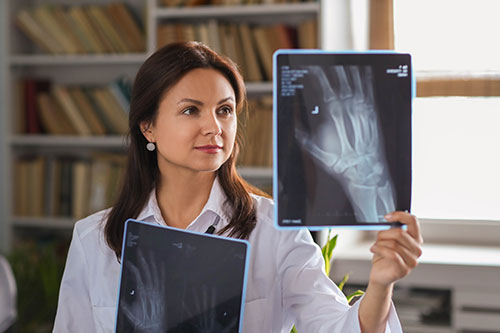Whom to See First? General Physician or Specialist?
When an injury or illness becomes more than something that needs an aspirin or a band-aid, the natural course of action is to go to a doctor for treatment. The question that often arises is what type of doctor. Do you go to your primary care physician or to a specialist? People often fear being labeled as hypochondriacs and so try to avoid going to the doctor. When they do go, they hesitate about going to a specialist because they do not want to appear to be making a big deal over a minor health issue. For example, for joint pain do you go to an orthopedician? For a rash, do you go to a skin doctor or wherever you may live? If your health package check-up shows you to be in good health, can you avoid going to the doctor when you are unwell? Knowing when to go to a doctor is important. Knowing which type of doctor to go to is even more critical.

General Physician or Orthopedician?
Let us use the example of a joint problem. A general/primary care physician is a medical professional who is trained in internal medicine and is the primary point of contact for a patient. The primary care doctor plays a crucial role in preventive healthcare and when a medical condition requires specialized treatment, he knows what type of specialist you should be referred to. Medicine is a huge field and no one doctor can be an expert in all aspects of it. When a condition requires specialized treatment, it must be given by a specialist.
Read Also: Knowing When to Go to the Hospital
When Should You Go to an Orthopedician?
If you have the following:
- Chronic, repetitive muscle, bone, joint, or ligament pain or problems
- An injury that results in muscle, bone, joint or ligament pain
- A medical condition where orthopedic problems are a known complication
- Suffered a similar problem in the past and it was treated by an orthopedic specialist
- Been advised by your primary healthcare provider to go to a specialist
Then you should not delay and contact an orthopedic doctor.
The signs that you should contact an orthopedician include, but are not limited to:
- A soft tissue injury that has not healed in 2 days or which continues to become worse
- Chronic pain in the bones and joints, especially in the back, neck, shoulder, elbow, hip, knee and ankle
- Stiffness or reduced movement and flexibility of a joint
- Movement limitations that prevent you from doing everyday tasks
Going to an orthopedician is not a sign of weakness. It is a sign of maturity that you accept that you may have a condition that requires specialized treatment and are going to where you will get it. The sooner you go to an orthopedic specialist, the sooner your treatment and recovery will begin.
- Nov 29, 2021
